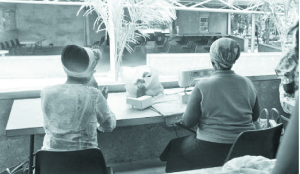
•COOPERATIVE societies need to be relevant to their communities and be seen to make corperate social responsibilities.
By DIERRE SAKALA –
THE Government, through the Department of Cooperatives Development, has embarked on a countrywide programme of selecting model cooperatives it will be working with to promote entrepreneurship among the societies.
In this vein, there is an apparent need to conform to the guidelines of the United Nations Department of Economics and Social Affair, to that effect, Government has taken a different swing in handling cooperative societies that are registered in Zambia, and promote cooperatives as viable enterprises.
The United Nations under the Co-operatives Social Policy and Development Division emphasises the need for cooperative enterprises.
This is meant to put social justice and equity at the heart of economic development which emphasises that a member-owned, member-run and member–serving business empowers people to realise their business aspirations whether at national or individual levels.
Speaking during a meeting held at Mpika Farmers Training Centre in Mpika District of Muchinga Province to sensitise the societies on the identification and selection of model cooperatives, Mpika District Cooperative Inspector Chileshe Mulenga said that it was worrisome that most cooperative societies have not been consistent in adhering to simple regulations such as record keeping for the business activities that the societies have embarked on.
Mr Mulenga said cooperative societies were business entities which should take record keeping as a pillar for their business organisations
He lamented that despite having conducted micro-trainings in most co-operative managerial skills, some societies have not implemented and urges them to be pro-active as the Government was spending huge sums of funds on these trainings.
Mr Mulenga said that a total of 10 cooperatives per district would be chosen to be models for this programme in the seven districts in Muchinga Province.
He stressed the need for the cooperative societies to organise themselves to scoop this rare opportunity
Mr Mulenga further advised leaders of the societies to put their societies in order adding that the selection criterion for the cooperative models leaves no room for mediocrity.
He stressed the need for the societies to hold special meetings and plan for the investments that they are to make in the financial year noting that, doing so will help the society have a clear direction of their business and also advised co-operatives to submit their annual returns by September 30, 2014.
Mr Mulenga said that societies that meet the requirements would be able to access loans from the Government for capacity building and only cooperative societies that observe cooperative principles, ethics and values will be given priority for selection.
Mpika District Cooperative development officer Reagan Ntalasha said the selection of the model cooperative was inevitable if a complete change of mind-set and transformation in the cooperative movement was to be achieved at household and national level.
Mr Ntalasha said that it was worrisome that some cooperative societies were not adhering to simple regulations such as record keeping for their business activities that the societies have embarked on.
He further said cooperative societies are business entities which should take record keeping as a pillar for their business organisations
Mr Ntalasha lamented that micro-trainings have been conducted and equipped with managerial skills, and some of them were already implementing and encourages them to be more pro-active as the Government was committed in funding these trainings that are meant to boost and empower cooperatives
And according to Principal Cooperative Officer Darius Mpundu alludes to the fact that, there are many suggestions that have been made with regard to the relevance and performance of cooperative societies, whether it was economical or not to have them around and whether they are being under-utilised, is another assertion that needs to be ascertained.
Mr Mpundu says that the involvement of the cooperative societies has been the biggest born of contention and the good news is that all the suggestions that have been made, from the donor agencies to the civil society organisations have not fallen on deaf ground.
He reveals that it is on record that out of the huge number of cooperative societies registered in Zambia today, less than 150 societies are making economic impact in their respective regions, a trend that is set to change.
Mpika District Commissioner Catharine Chama Chileshe said that Government recognises the role of cooperatives in economic, social and cultural development and achievement of household income.
She said cooperatives have emerged as one of the strong force at grassroots through which development can reach rural areas.
On the on-going identification programme for cooperative models, Ms Chileshe says it was important for cooperative societies to be enterprising in their activities to ensure that they create impact in national and household development.
She revealed that the Government was eager in developing the cooperative movement thus the promotion of the recapitalisation through the Zambia Cooperative Federation (ZCF).
She added that cooperative societies are business entities that are expected to venture into income generating activities and cushion government on social issues.
It is against this background that government has chosen to narrow down its resources to a smaller but effective number of societies that will be able to influence other societies. And in turn, this will enable the meager government resources are channeled to programmes that can easily be monitored.
Therefore, cooperative societies need to be relevant to their communities and be seen to make cooperate social responsibilities as they have support of the government and other stakeholders and they should also embrace the principles of democracy and education as well as the ethics equity and equality are cardinal. — NAIS






